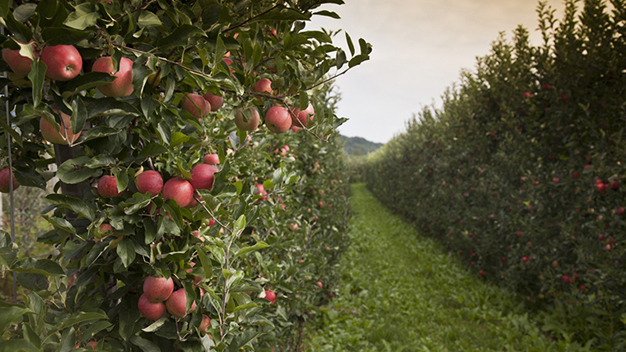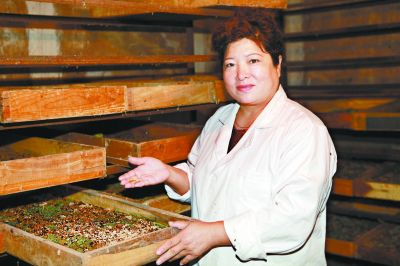03:11

This year marks the 20th anniversary of China's Rural Scientific Commissioner Project. Over 45,000 experts have been dispatched to villages and counties all around the country over the course of two decades. They have dedicated their knowledge and experience to help with poverty alleviation and something more.
One hundred kilometers outside downtown Beijing, in the mountainous Mentougou district, lies an apple orchard. It belongs to the local Yinongyuan agricultural co-op. Kou Hongyan founded the co-op in her hometown in 2005 and has been running it ever since.
In 2009 she was invited to join the special scientific commission, who recognized her excellent work.
Kou is one of the nearly 50,000 special scientific commissioners stationed all across China. The first ones were assigned 20 years ago, and their mission is to accelerate poverty alleviation in rural areas by using scientific methods.

Kou Hongyan, founder of the co-op /CGTN Photo
Kou Hongyan, founder of the co-op /CGTN Photo
Her work at the co-op is mainly to introduce circular agriculture. She tells chicken farmers to save chicken waste and use it to fertilize the orchard. And she collect rotten apples and worms to feed the chicken.
Kou also encourages farmers to have their products certified as organic. "They didn't know there was such a thing as organic food. Now they see the price difference, they are very happy."
Harvest season has just wrapped up at the orchard, and Kou is already out doing other tasks she has taken on. Her co-op may have started as a center for farmers. But now everyone is welcome. Villagers can come to the public library for books on gardening, management and sales. Retirees can develop their interests at the handicraft workshop and send their works to exhibitions and charity auctions.
One project Kou is particularly proud of is a cooperation arrangement with district courts. Teenagers charged with misdemeanors can do their community service at the orchard. So far Kou has hosted 14 teenagers.
She says most of these kids grew up with no parents or only one. Some of them never went to school. People who brought them to the cities and promised them a good life cheated them to do bad things. She says if they do community service at the co-op, she can at least give them a bed and meal.
Kou tells us nowadays most farmers in her hometown have learned about circular agriculture. She says it may be time for her to help farmers in other areas, even other countries.
She has gone to a lot of international farm fairs representing the Ministry of Agriculture. Officials from other developing countries asked her to do training for their farm owners and agriculture specialists. So far she's accepted requests from Colombia, Malaysia and other developing countries for her to talk about how co-op systems work in China.